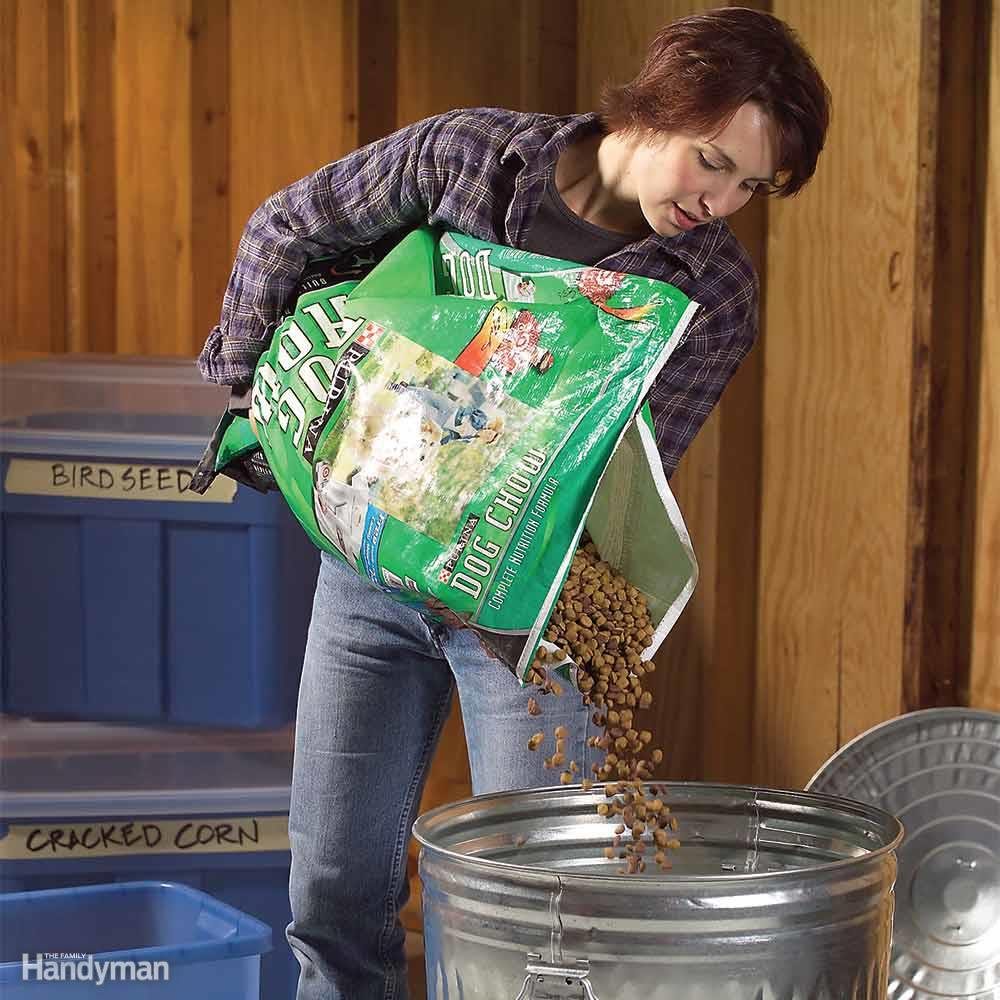
Pet Food
Storing pet food in your garage is basically like inviting pests into your home for a delicious snack. But if you must keep pet food in the garage (or even when it’s inside your house), be sure that it’s inside a tightly sealed plastic or metal container. Rodents can easily chew through paper or cardboard packaging.
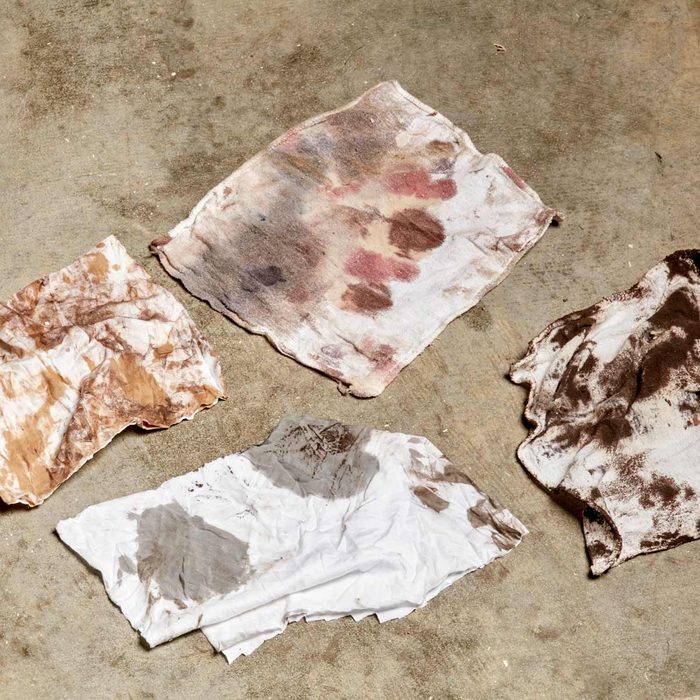
Oily Rags
An oil-soaked rag is something you should never store in your garage. Spontaneous combustion (and a devastating fire) can occur when oily rags are stored where the internal heat that is generated isn’t allowed to escape.
Here are more facts about house fires that could save your life.

Books
You want to save your favourite books from childhood to give to your kids or grandkids someday, but storing them in the garage isn’t the best solution. Silverfish are insects that thrive in dark, damp environments such as garages, basements and crawl spaces, and the bugs love to feast on starchy substances—including the glue that binds books.
Check out the 10 most disgusting house bugs (and how to get rid of them).
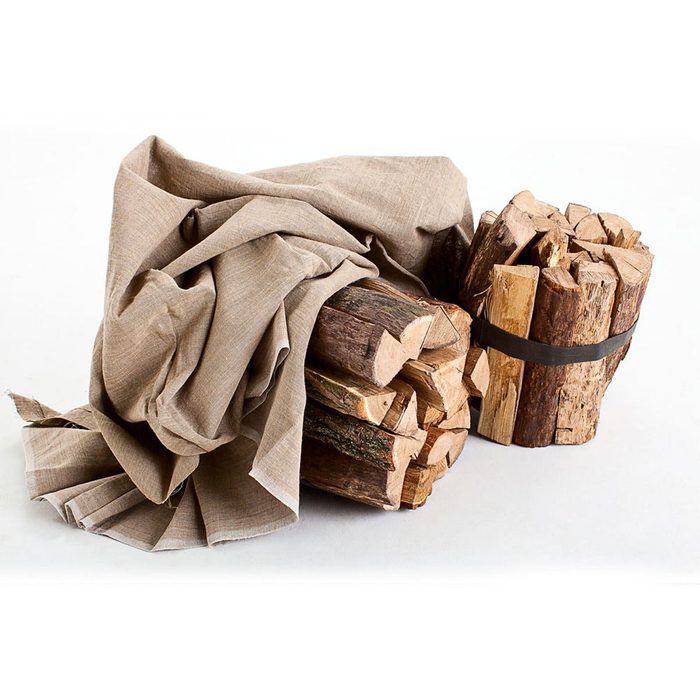
Firewood
While firewood may be an important year-round staple in your home or backyard, it’s also a magnet for pests that will happily make the jump into the house. Be sure to store firewood at least 6 metres (20 feet) away from the house—that includes the garage—and only bring in as much as is necessary.
Follow this seven-step plan to prevent garage break-ins.
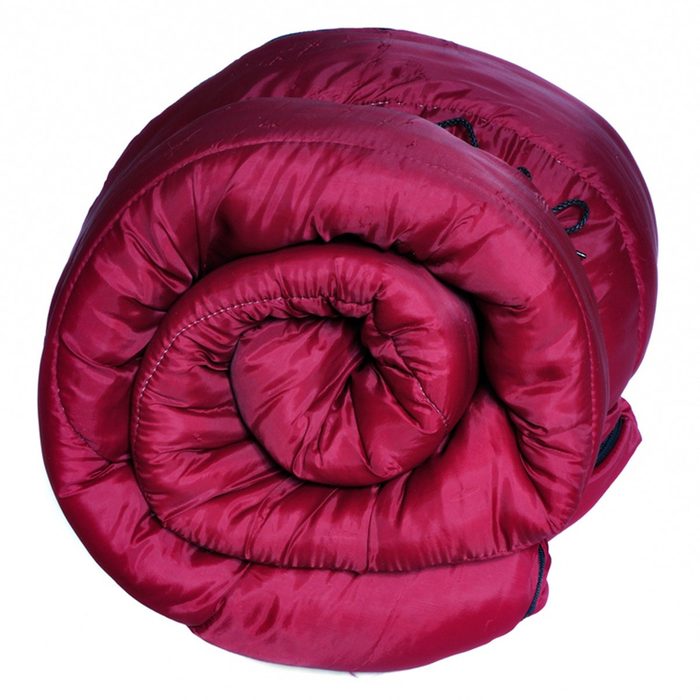
Sleeping Bags
It’s tempting to stash sleeping bags with other camping supplies in the garage, but you’ll regret it. Fluctuating temperatures and humidity are not ideal conditions for storing fabric. It can get moldy, and makes an ideal nest for rodents. Instead, store sleeping bags and other fabric items inside your house.
Find out the 13 secrets your exterminator wants you to know.
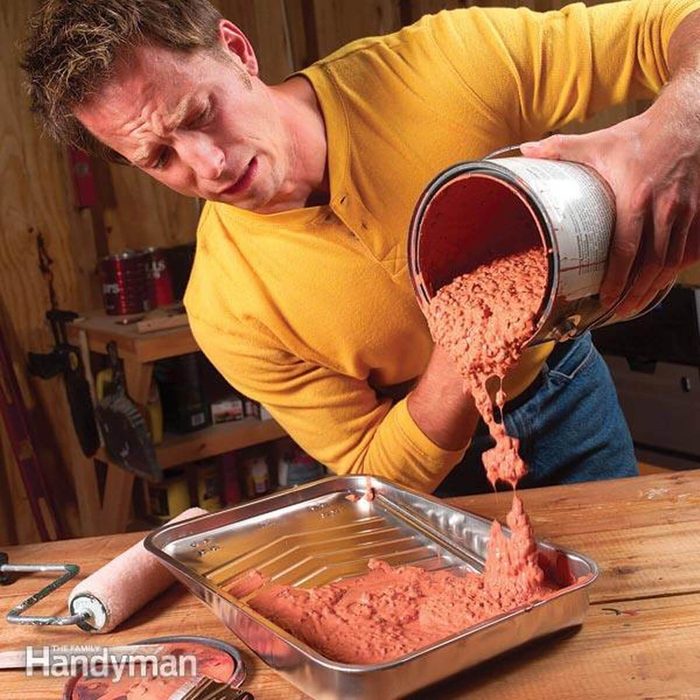
Paint
Extreme heat and extreme cold can alter paint formulas. So if the temperature in your garage is a rollercoaster throughout the year, it’s not an ideal place for storing your leftover paint. Check the paint can label for recommended storage temperatures.
Discover more DIY painting tips from the pros.
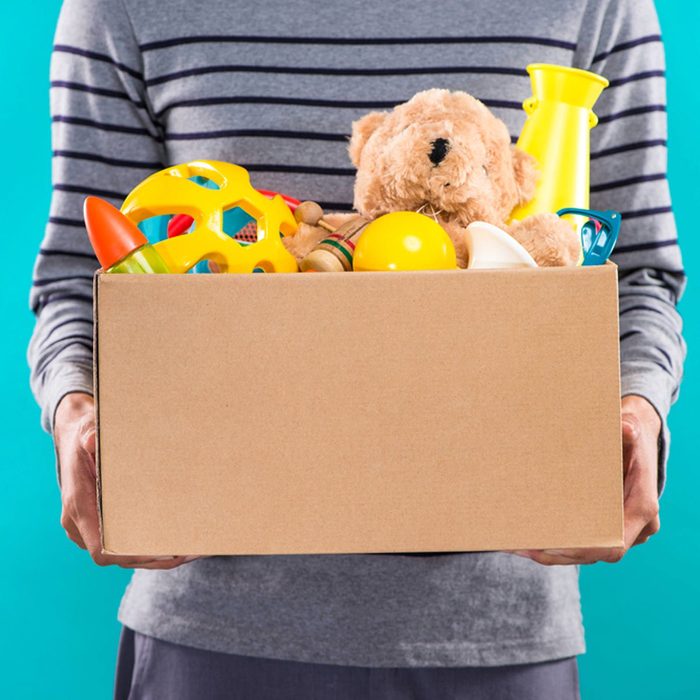
Toys
Your child’s favourite toys—especially stuffed animals and other plush toys—should be stored in an area other than the garage. Dust mites, other insects and even mice will trash these childhood treasures if given the chance. If you must store toys in the garage, make sure they are secured in airtight containers.
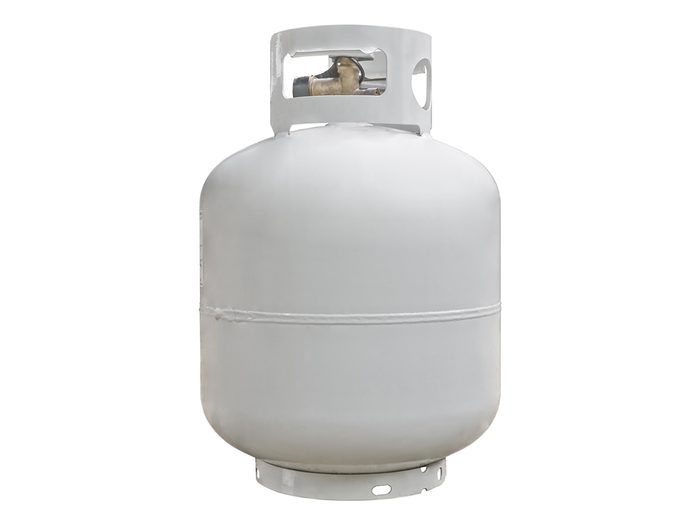
Propane Tanks
A propane tank is usually safe, but if it happens to leak in an enclosed space such as your garage, any small spark—even starting your car—can cause a fire. Make it a point to never store propane tanks in your garage.
Follow our healthy home checklist to eliminate potential hazards in every room.
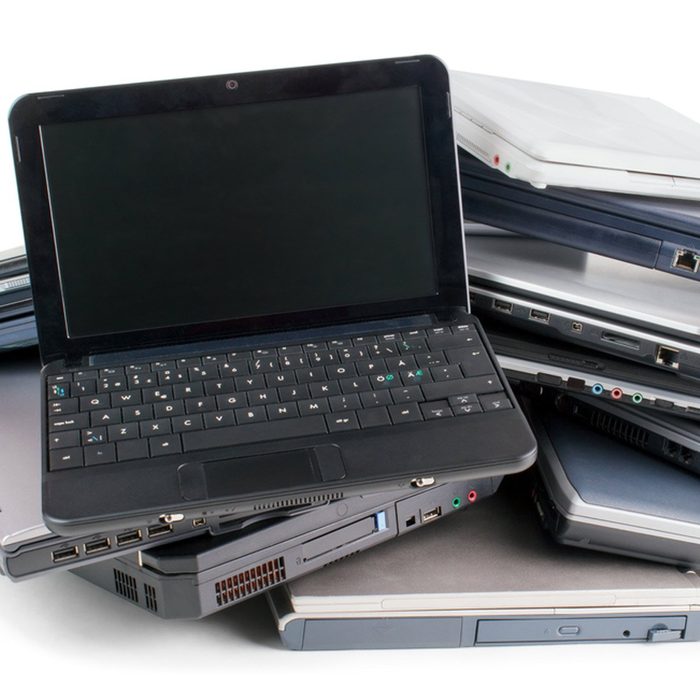
Old Computers
Humidity and extreme temperatures can cause computers and other electronics to short out. Always store electronics inside your home.
Find out other mistakes that shorten your laptop’s life.
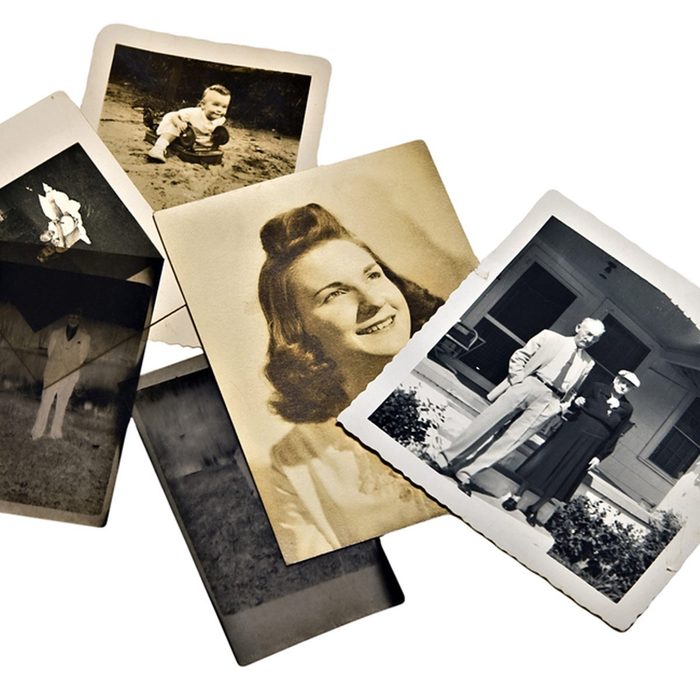
Printed Photographs
Printed photos (especially those that don’t have digital copies) should never be stored in the garage. Extreme heat, cold and humidity will quickly ruin those cherished memories.
No room indoors for everything you want to keep safe? Here’s how to squeeze more storage out of a small space.
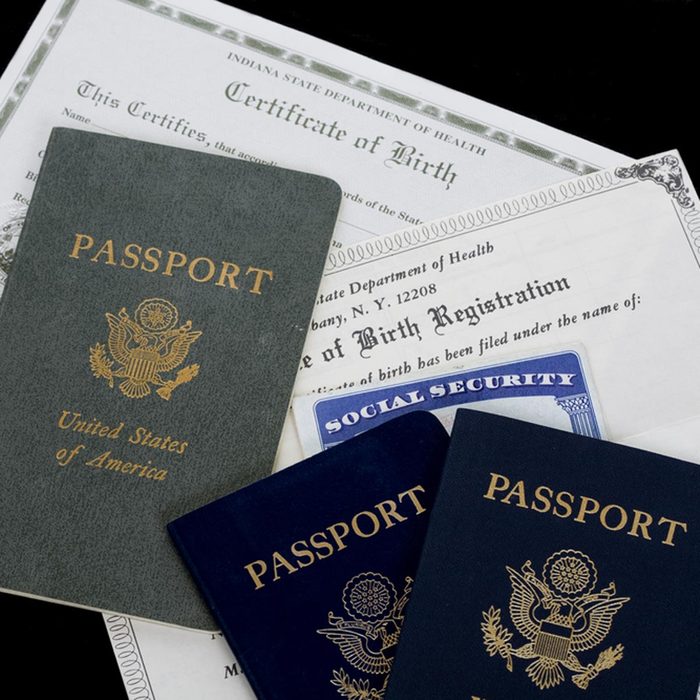
Important Papers and Files
Don’t risk keeping those important papers such as medical records, passports and birth certificates in your garage, where they could be damaged by humidity. If you need to keep some paper items in the garage, be sure to store them in an air-tight plastic container.
While you’re at it, take these 15 things out of your car right now.
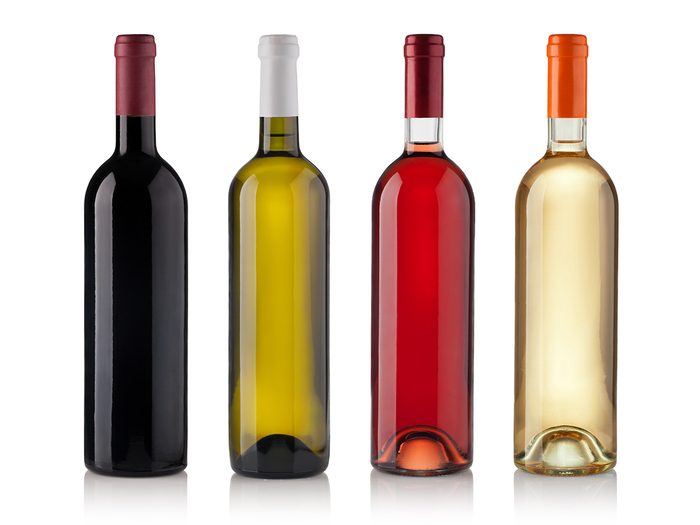
Wine
Fluctuating temperatures and humidity can actually alter the taste of wine.
Find out which foods you should never store in the fridge.
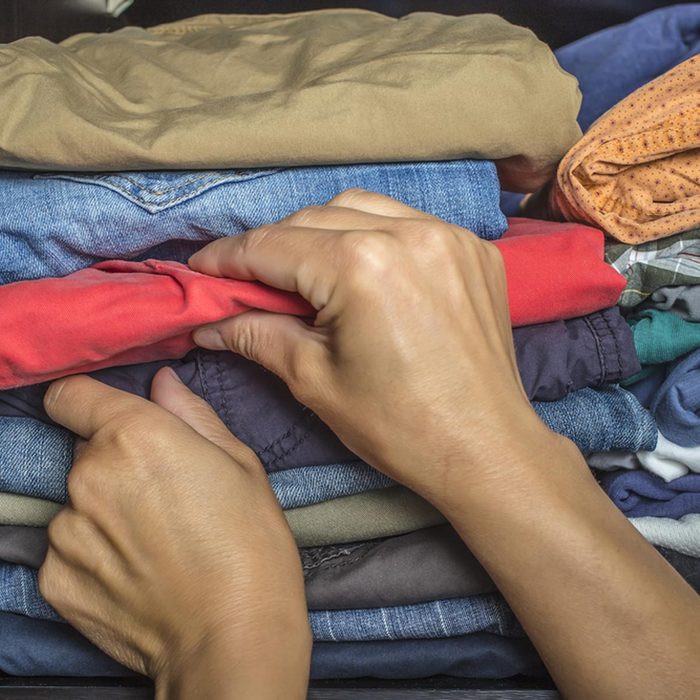
Old Clothing
Consider storing your old clothing—whether your favourite dresses, winter coats or sweaters—some place other than the garage. Clothes are prone to moth infestations, while fur and leather can be damaged by dampness and high humidity. Keep clothing in sealed plastic bags and store indoors.
These home organization hacks can help you declutter.
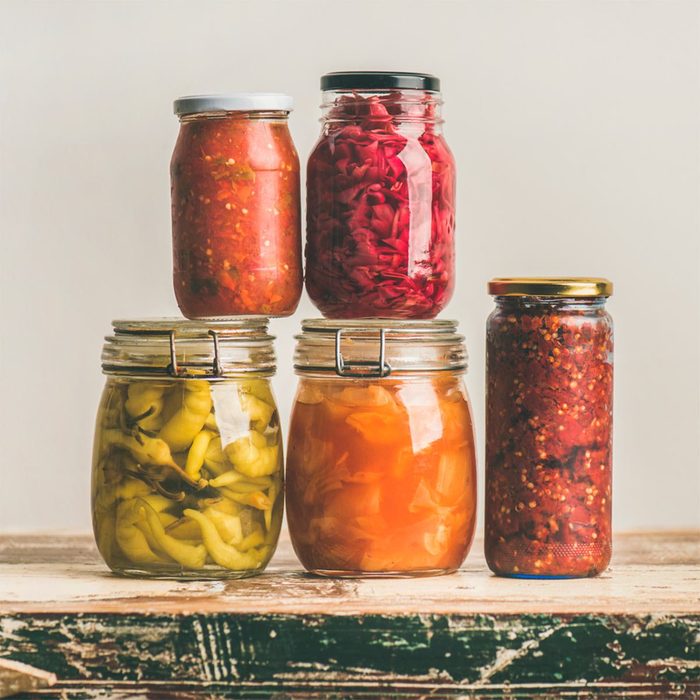
Canned Food
Contrary to popular belief, even canned foods can spoil. With that in mind, keep them stored at temperatures between 10 and 21 degrees Celsius. Humidity in a garage can also cause cans and metal lids on glass jars to rust, potentially causing a chemical reaction with the food inside. In addition, food attracts pests, which you don’t want anywhere near your home!
Here are six expiration dates you should never ignore.
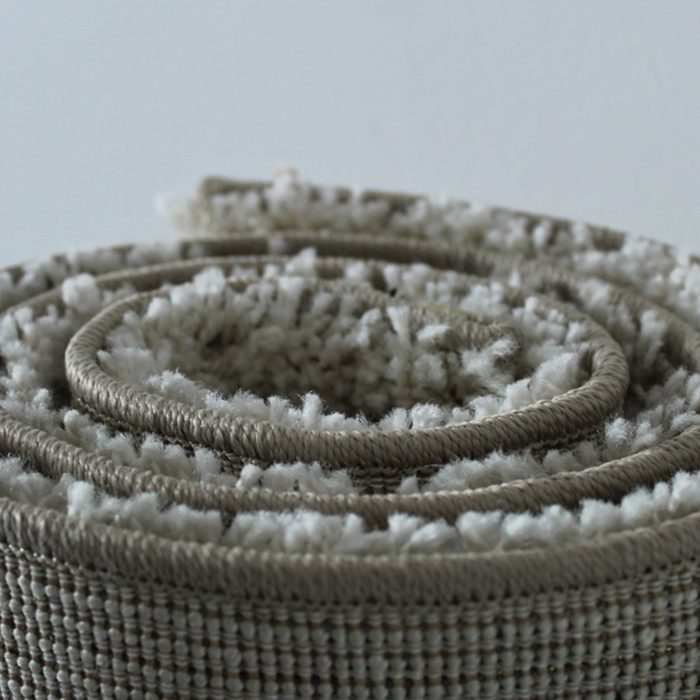
Rugs and Carpeting
Rolled up rugs and carpeting make great homes for insects and mice. The rug and carpet fibres will also absorb moisture and odour, which may ruin them if left for long periods.
Next, check out these inspired garage storage ideas.